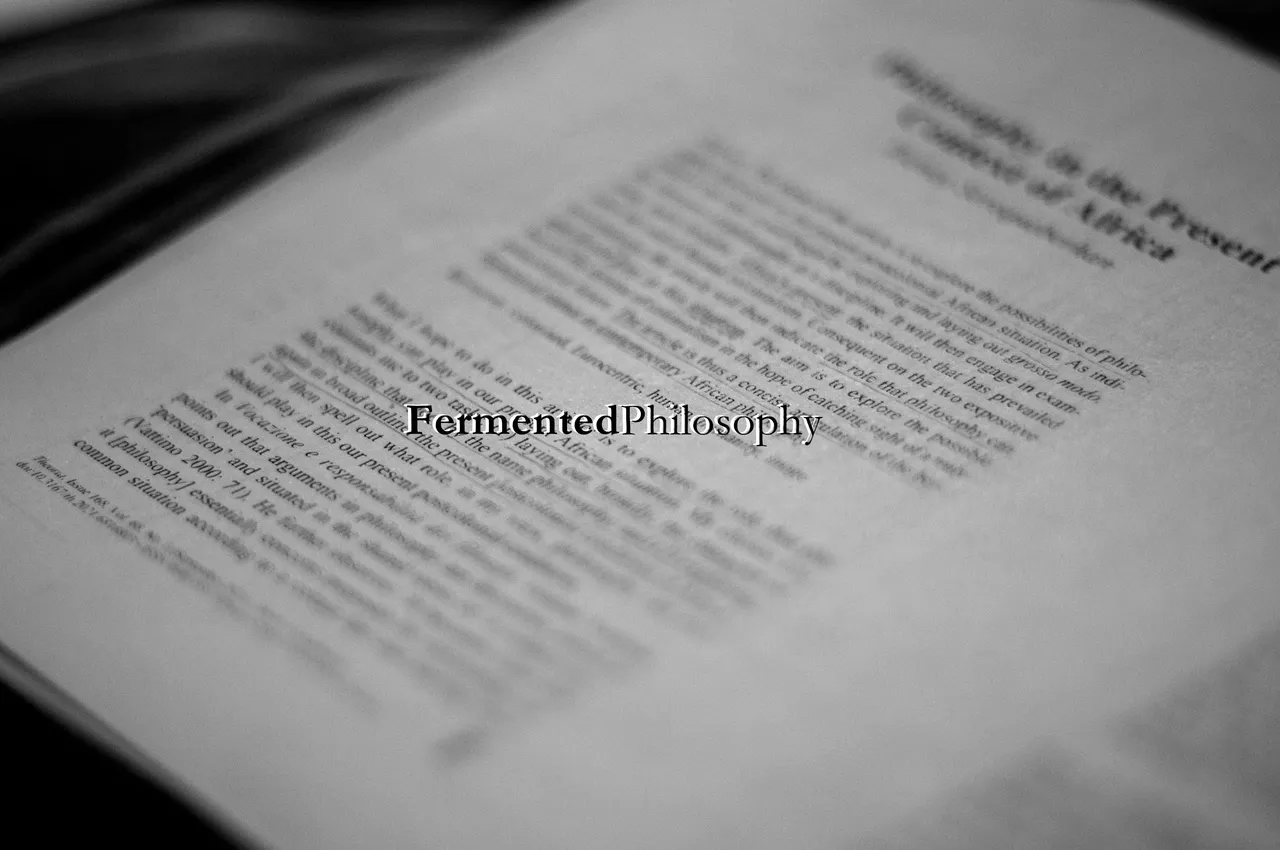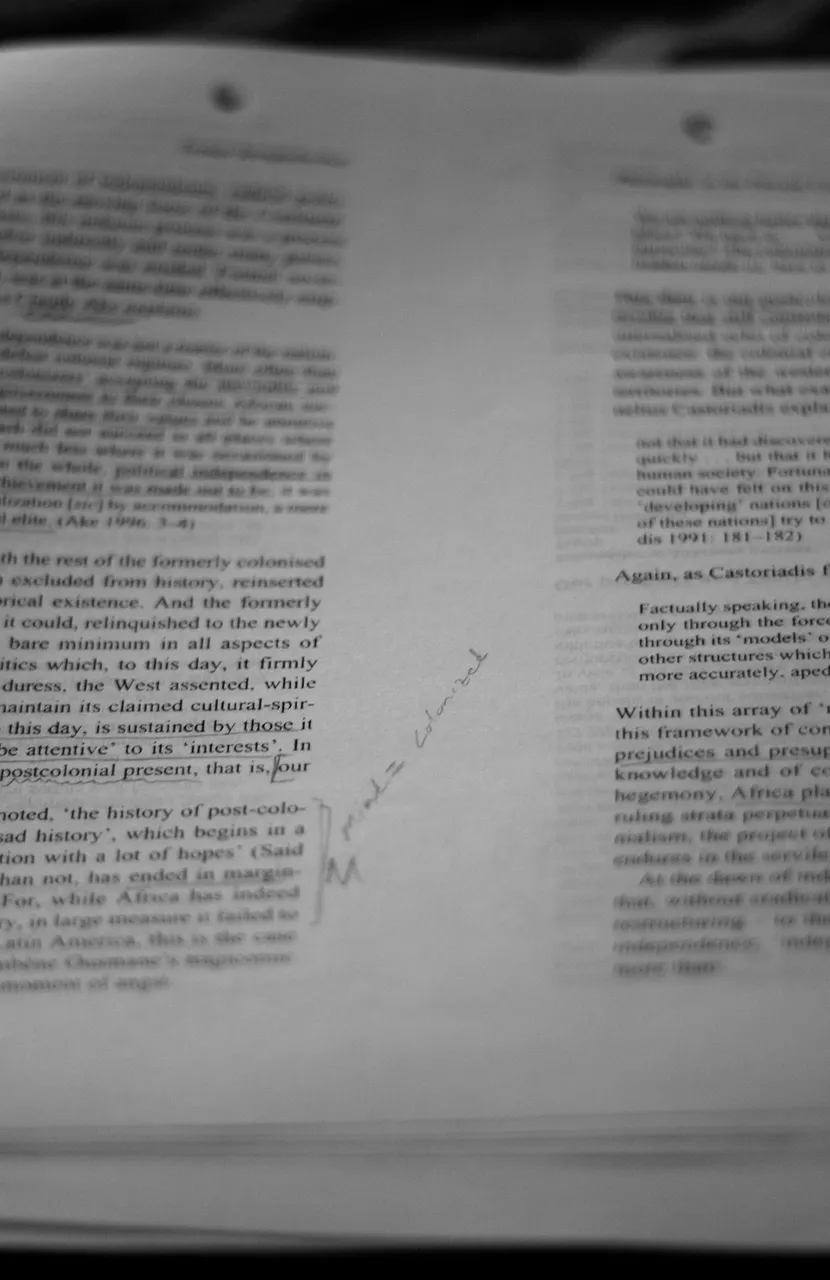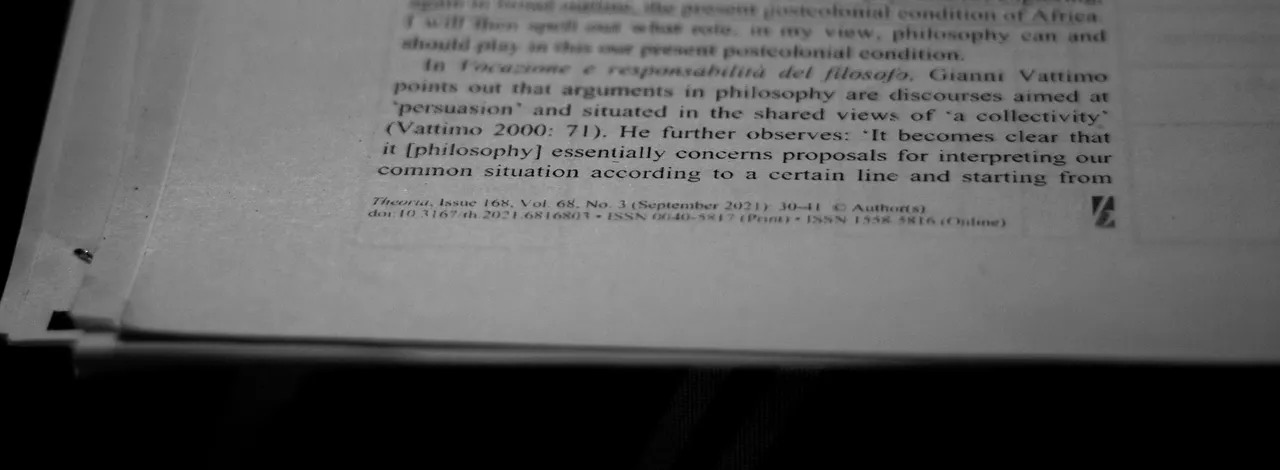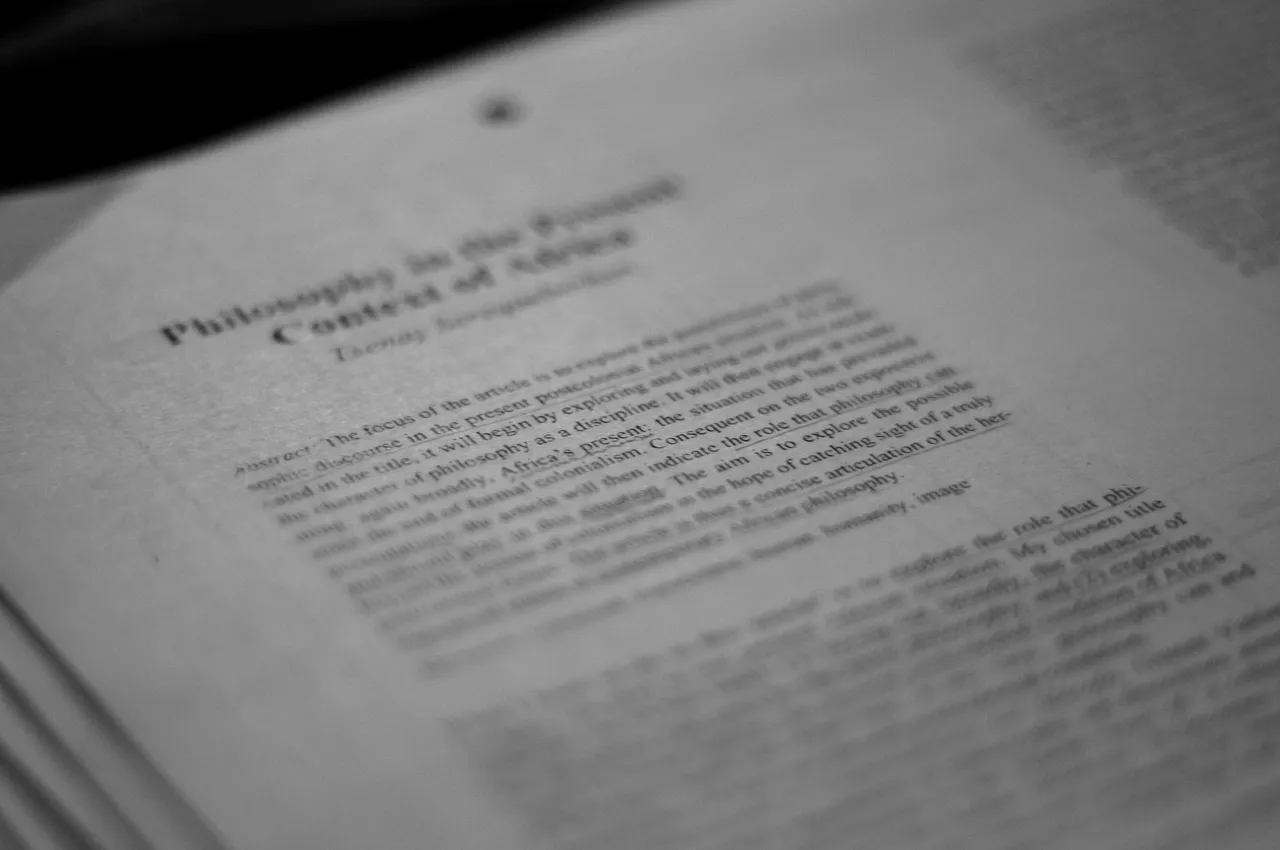
What is the common notion most people have regarding academia? It is a place where only teaching happens? My first year tutors always told me that professors and doctors only have minimal time for teaching, the rest goes into publishing and research. So in this sense, academia is about publishing and research. Sharing your work through publishing is thus academia, a place where the collective knowledge base grows. But having spent some time on both side of the fence, being a student and having taught classes, and now getting into the publishing sphere, something is beginning to bug me...
I want to begin by firstly laying all my cards on the table, coming clean so to say. Then I want to delve a bit deeper into this problem I have that bugs me. My rant thus consists of the perceived failure of academic integrity and standard which cripples research in the process. But let me take this step by step.
(This rant became very lengthy very quickly. Here is a TLDR/summary version: Why bother publishing and trying to add something new to the field if you are not going to tidy up everything so that other people might use your work, akin to standing on your shoulders to look further?)
Putting my cards on the table
I am fairly new to the publishing space. I have two articles that have passed the peer review stage and I am waiting for feedback on them, hopefully they get published. I have published in my student journal and acted as a "peer reviewer" on multiple occasions, but this is mock at best, or in preparation for what is to come if I want to enter the academic space. But for now, I have not yet published anything, but hopefully at the end of the year I will have two articles under my belt. (I keep on telling myself, if it is past peer review stage and the reviewers only asked for minor changes before it gets published, it is as good as through; but I do not want to give myself false hope. I digress...)
I have been writing academic work close to 8 years now, so I am fairly "new" in the space. I received my master's degree a couple of years ago and I hope to finish my Ph.D. in the coming year. Again, I am fairly new in this space. This does not grant me anything close to claiming expertise, but I have been at it day and night for many years now. And like most post graduate students, I have read my fair share of academic articles and books. And having been through the peer review stage now, I am almost at the point that I can claim that I have some (minimal) experience.

That said, something is bothering me, it is really grinding my gears. And that is the lack of academic integrity and scholarly responsibility I find so often...
Predatory Publishing is Nothing New But Sloppy Work Just Doesn't Cut It
Predatory journals and people publishing in them is nothing new. To explain this will take up another post. But briefly, these journals cut so many corners, and they are basically just after money. With a publication, you and the journal can make money. But as I said, this is a very complex situation with much-needed nuance and not really what I am furious about. But this behaviour comes from these journals and is reinforced into most people's publishing.
And this is what grinds my gears: sloppy work, sloppy referencing, sloppy everything. Why then even bother? If academia is about research and collective knowledge growth, why go through the trouble if you are not honest about everything? Why hide references?
Let me begin with this then. Referencing. Oh, how have the mighty fallen before this giant. Referencing is not nice, no one will claim that is it. But it serves such an important goal: to help others see where you got your ideas from, and to help others along so that they do not have to reinvent the wheel. If you claim XYZ but I want to also build upon that but I do not have your sources, I might not be able to carry on the important work. And I guess this is not so controversial, but having more people trying to solve a problem, the quicker we might come to a solution. But let me quickly justify this or situate it:
I am writing from a humanities perspective, especially philosophy. This is not akin to math or the sciences or engineering where intellectual property and all of that might be more important. In philosophy we might have some of that, but I am of the opinion that no one can "steal" your work. It is not an "objective" science, it is a subjective discipline. I am the argument, no one can steal it in the sense that someone can steal money or mathematical equations. Some might differ on me with this, but I really think that I am the only one with my own ideas, no one can come to the same conclusion or argue in the same way as I do, because I am coming from a different background than someone else.

So what happens if someone only uses half a reference? What if someone says, I got to XYZ by reading author P and his/her book Q. What does that help me? I do not have the time to read the whole book again, in order to find one argument that the author found and that I might find valuable? Recently, I read an article in which the author merely referenced the author and the title of the book. It did not say what page they used. I wanted to use that particular argument, and I wanted to read more about it so that I can get a more nuanced understanding of the situation. But the author of the article did not add the page number.
Not this can only mean one of two things. Both are sloppy and grinds my gears.
Firstly, the author might not have read the work and used it from someone else. So they also do not know the page number. Or secondly, they just neglected adding it. They could not bother adding it. Sloppy scholarship. (Let me tell you why it is not the third option, that being that they want to hide their research: because they added page numbers to all the other sources.)
Another example. I read a study and I found the argument very important; I wanted to build upon it. So I checked the bibliography/reference list to find the source. And they forgot to add the source in their source list. Again, sloppy scholarship. I could not find the source because it was a common surname and Google scholar can only help you so much. Plus, I do not have the world's time to find sources that are not as popular as other fields.

And the Consequences are...
There is a simple consequence of sloppy scholarship: the author slows down or stagnates knowledge growth. In a field like philosophy in the humanities, arguments are slow to grow. It takes time, few people are in your niche field, and even fewer want to read it. Language is also a barrier sometimes. I have read papers in Dutch (with some trouble) that stated something very similar to me. If I did not have the ability to read the Dutch, I would have tried to reinvent the wheel. But how many such cases are out there, where a paper is published in a different language?
This is a hurdle with no clear answer. But sloppy scholarship is something that should not be a thing. It halts growth, and it is just frustrating in general. What happens is people will then publish the same thing over and over again, minimally changing the intellectual property, and getting nowhere.
As I said above, philosophy is not like math, it is not something "objective", instead, it entirely relies upon authors to do the hard work of quarrying and digging, and the product is entirely unique to that person. If someone does not publish his/her work, we might never have that particular line of thought and nuanced argument. And in helping the field grow, it becomes imperative that authors help others to succeed as well. It is not like an author can steal your work, I can also read the book and come to my own conclusions, but I do not always have the time to do that. I thus rely on others to help speed up the process of making information available so that I know where to look for.
Again, this just comes down to sloppy work, forgetting to check your reference list, neglecting to double check. And yes, time is scarce for us all, and people are overworked or could not care less.
But why even bother then?
Postscriptum, or Rant Over
This is not the most common issue in academia, just something that has been grinding my gears lately. Not everyone publishes sloppy work, and peer reviewers often find these mistakes. But we are all human and it might just be per chance that I have found so many missing references regarding the work I am doing. And I am not going after any author, publisher, or peer-reviewer. It is merely frustrating. I might also totally be misguided in my opinions! It is after all a rant and not a coherent argument. I am reminded by a famous author whose name now evades me, who said that he wrote angry letters but waited three days before he mailed them. Eventually, he never mailed anything because he came to the conclusion that it was not worth it. Maybe I should have not posted this, but it has been bugging me for more than three days now!
In any case, if you read the entire rant, thank you so much for your attention! Have you experienced anything similar? Please let me know!
For now, happy ranting, and keep well.
All of the opinions in this post are my own, and they are not aimed at a specific person. The photographs used are also my own, taken with my Nikon D300. The subject material are from a good article, not one I ranted against. The musings are thus my own.